
Welcome back for another edition of the Networking and Security Series. Last time, we discussed the advantages and disadvantages of using virtual private networks (VPNs), and in today’s article we’ll compare top VPN providers. Other posts in this series have included:
- All About DNS
- Wi-Fi Security Revealed
- What the New Wi-Fi 6 Standard Brings to Wireless Networking
- Zero Trust, a New Way to Look at Network Security
None of the comments in this post should be construed as an endorsement of a product; depending on your needs, one VPN provider might be more suitable for your needs than another. You should also take advantage of any “test drives” provided by VPNs to see if a particular service works well for you. Finally, watch for deals listed on websites or in marketing emails — VPN providers often discount monthly or annual subscription fees to entice users to switch, so it’s possible to save a lot of money on VPN service just by paying attention.
All of the VPNs listed here work with macOS and iOS. In the table below, we compare six top VPNs by feature and price, and at the end of this article we’ll discuss one solution to privacy and anonymity that isn’t a VPN (yet) but might fit your needs soon.
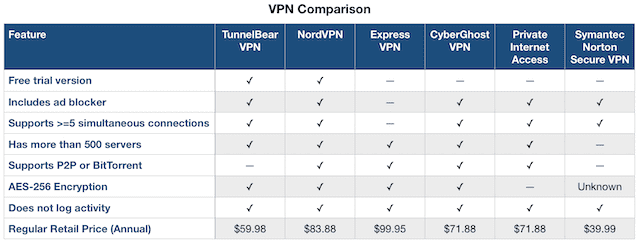

TunnelBear VPN
First-time VPN users often find themselves drawn to TunnelBear VPN because of its simple client software for almost every computing platform. TunnelBear offers a free account that is limited to one device and 500MB of data per month, but that’s sufficient on a mobile device for testing VPN use over public Wi-Fi. The iOS app provides a simple on/off switch, can connect your device to the TunnelBear network with 3D Touch from a device home screen, and offers an animated map that visually demonstrates how your data is being tunneled through one of the servers.
For the Mac, that same on/off ease of use is still there but is found in the Mac menu bar. The company has over 500 servers in 22 countries at this time.
NordVPN
NordVPN is consistently rated higher than any other VPN provider. NordVPN’s Mac app is available on the Mac App Store and uses military-grade encryption protocols (IKEv2/IPsec). There’s no bandwidth limit, and the app features an automatic kill switch if your connection drops — important in keeping your data completely safe.
NordVPN has over 5,100 servers located in 60 countries, making it one of the largest commercial VPN providers on the planet. The company offers a one-week free trial of their service, which should be enough time to really get a feel for how easy the app is to use and how well it protects your personal information.
Express VPN
With over 3,000 servers in 94 countries, Express VPN provides probably the greatest international diversity of any VPN provider. Like NordVPN, Express VPN uses some of the more robust encryption methods available. There’s an auto kill switch built into the Mac and iOS apps, and the apps recommend server locations you might wish to use.
Although Express VPN doesn’t offer a free trial, they do offer a “no fuss 30-day money-back guarantee” if you’re not happy with the service. They’re about the most expensive VPN service, but their fast servers and 24/7 customer support are worth it to many users of Express VPN.
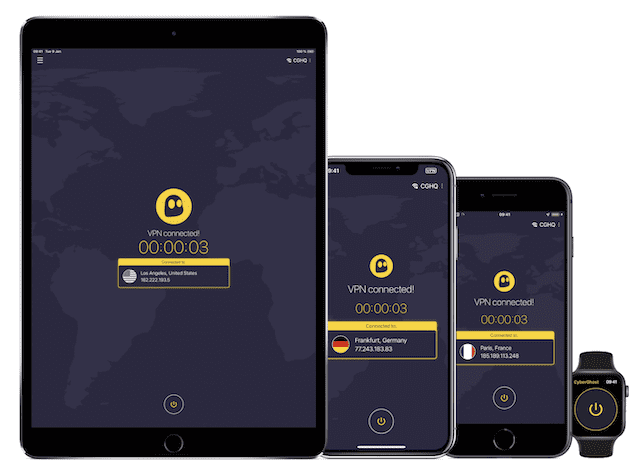
CyberGhost VPN
CyberGhost has been around quite a long time; I personally remember using them to access a corporate WAN back in 2004. CyberGhost lets you protect up to 7 devices simultaneously, which may be a necessity for some Apple fans who have every desktop and mobile solutions the company offers. Like Express VPN, CyberGhost doesn’t offer a free trial so you will need to sign up to try the service. However, CyberGhost provides an even longer time to “try it” — there’s a 45-day money-back guarantee available.
CyberGhost has almost 3,700 servers in more than 60 countries and works well with the last three versions of macOS (10.12 through 10.14) as well as iOS. The company also has the only VPN client we’ve encountered for Apple Watch — important if you really value privacy, as the device connects to the Internet via both cellular and Wi-Fi connections.
Private Internet Access
Like all of the other services listed here, Private Internet Access provides both a macOS (64-bit) app and an iOS app, as well as extensions for Chrome, Firefox, and Opera. PIA has over 3,000 servers in 32 countries.
Two fascinating things about the PIA app for iOS: first, it offers a user-configurable user interface. Second, it’s the only VPN app we looked at that has added Siri Shortcut support, so you can actually ask Siri to enable or disable VPN protection on your iOS devices. If you have a lot of devices, Private Internet Access is going to be your best as it handles up to 10 devices simultaneously.
Symantec Norton Secure VPN
One of the least expensive VPN solutions is probably the one with the most brand recognition — Symantec Norton Secure VPN. The company’s regular price for a year of service is just $39.99, although that may rise after the first year of usage. At that rate, up to five devices are covered simultaneously; add five more devices for another $20 per year.
Norton Secure VPN offers the longest money-back guarantee — you have 60 days to try the service. That being said, there are some negatives about this provider. They don’t offer service to BitTorrent users, and they have less than 500 servers available. The most likely users of Symantec Norton Secure VPN are those who use the company’s anti-malware products as well.
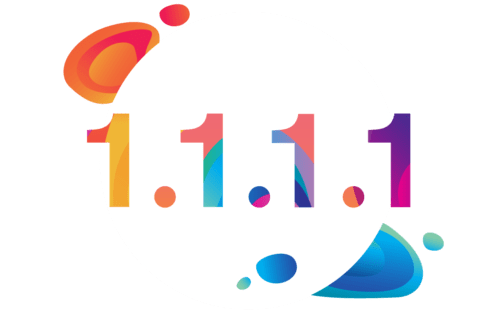
1.1.1.1 — The VPN That Isn’t a VPN…Yet
One service that is mostly free (there’s a paid option coming in the future) and began as a fast DNS resolution service is CloudFlare’s 1.1.1.1. The service has a free iOS app and Macs can be set up to use the 1.1.1.1 DNS resolver quite easily.
Now, 1.1.1.1 isn’t a true VPN…yet. Right now, it basically hides your DNS queries and speeds up your web browsing through the fastest DS resolution anywhere. CloudFlare announced on April 1, 2019 (and no, it’s not a joke) that they will offer a full VPN service called 1.1.1.1+Warp starting soon. When you load the iOS app and turn on the 1.1.1.1 service with a tap, you’re given the option to be put on the waitlist for 1.1.1.1+Warp.
Warp uses WireGuard, an open-source VPN protocol. While CloudFlare is one of the early adopters of WireGuard, it is gaining a lot of attention in the VPN community for being more secure and easy-to-manage than current protocols. It also has the advantage of instant reconnections in case of a drop, while other VPNs can take a while to reconnect — the reason why so many of them have implemented kill switches.
The cost of 1.1.1.1+Warp is perfect: it’s free. CloudFlare isn’t losing money doing this, as they’ve designed the 1.1.1.1+Warp service since conception to run on their Internet infrastructure as a normal service. They are planning a Warp+ service for a “low monthly fee” that runs on the company’s virtual private backbone and uses a smart routing technology to speed up Internet access.
Things to Look For In a VPN Provider
We’ve just provided you with some VPN choices, but the best way to find a VPN provider that works for your situation is just to try out a few. Here are some guidelines for finding a reliable and trustworthy VPN:
- Always check reviews of the service to see how others view the provider
- Take advantage of free trials or money-back guarantees to try VPN providers
- Using a VPN provider for international streaming? Make sure they’re not blocked by content providers like Hulu, the BBC or Netflix.
- Make sure that the provider has a no-logging policy
- More servers in more countries make for better anonymity online
- If you will be using a VPN for anonymous BitTorrent access, make sure the VPN provider allows it
- Be sure to get an account that’s sized for the number of devices you may have on the VPN at the same time
- Watch for deals, as VPN providers are constantly having sales and promotions
- Check for a kill switch capability, as dropping a VPN connection without one can expose private information to hackers
- Some VPN services can significantly slow down your Internet browsing, so test your speeds for the sites you visit the most

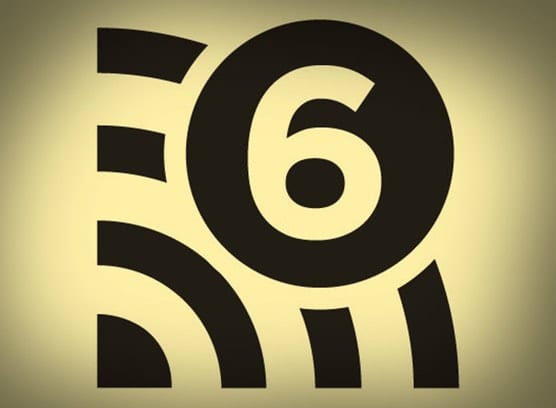
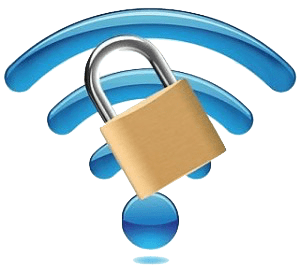
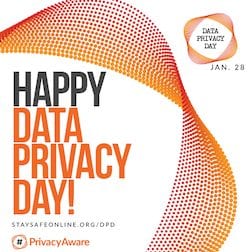

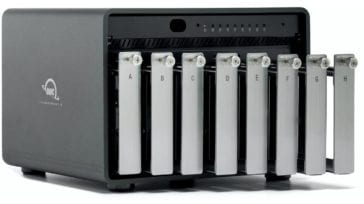



Thanks for the info I’ve been looking for a VPN for some time now your comparison help me a lot.
Around 3 years ago, I looked for a VPN for my MacBook Pro via a search by Google and found ‘Avast SecureLine VPN’. It works well and is more expensive than others but includes an antiviral & password management programs. However, Avast is not mentioned anywhere, AFAICT. Any comments would be appreciated.
So, what are the ratings for them? Pros and cons?
Now, what about firewalls like Little Snitch?
I use VPN Unlimited. I got a lifetime subscription at a reduced price sometime ago. The developers are very responsive to any questions & quickly fix any issues.
I also have VPN Unlimited by Keep Solid. I got it several years ago for lifetime and have had excellent customer service each time I had a question or asked them to fix an issue. They have been good to me and I recommend them highly.
A minor point: “More servers in more countries make for better anonymity online”. That’s not true for protection against state-level surveillance; in fact, more servers make for **worse anonymity**.
Here’s an example, assuming a state-level entity can monitor the the encrypted packets coming from your computer and the unencrypted packets going out from the VPN server (which is more-or-less what “state-level” means):
(A) The VPN provider has 10,000 clients and one server. It is difficult to correlate encrypted packets exiting your computer with the unencrypted packets exiting the VPN server because your outgoing packets are mixed in with packets from all 10,000 of the other clients using that VPN server.
(B) The VPN provider has 1000 servers. It is much easier to correlate the packets because your packets are only mixed in with packets from (on average) 10 other clients.
(C) In the extreme: The VPN provider has 10,000 servers. It’s now trivial to correlate the packets and expose you because (on average), your packets aren’t mixed with anyone else’s!